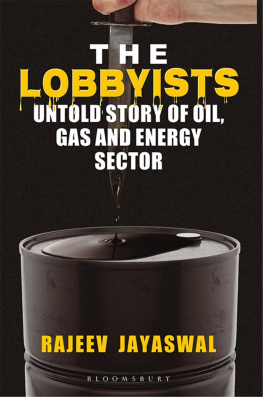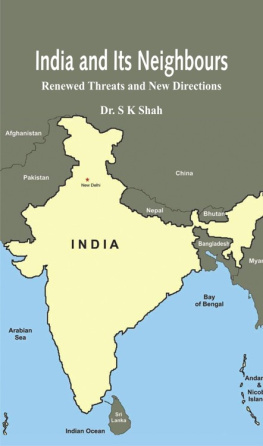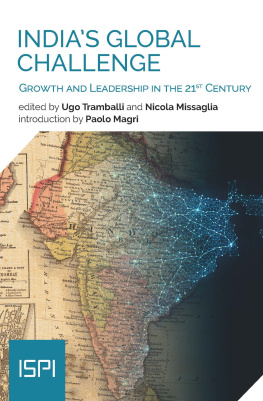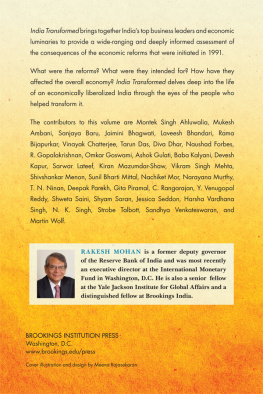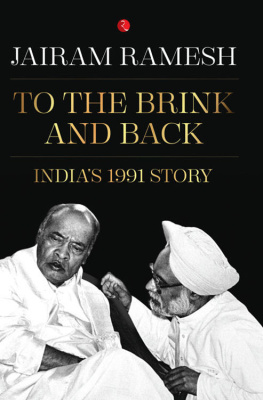Rajeev Jayaswal - The Lobbyists: Untold Story of Oil Gas and Energy Sector
Here you can read online Rajeev Jayaswal - The Lobbyists: Untold Story of Oil Gas and Energy Sector full text of the book (entire story) in english for free. Download pdf and epub, get meaning, cover and reviews about this ebook. year: 2017, publisher: Bloomsbury Publishing, genre: Politics. Description of the work, (preface) as well as reviews are available. Best literature library LitArk.com created for fans of good reading and offers a wide selection of genres:
Romance novel
Science fiction
Adventure
Detective
Science
History
Home and family
Prose
Art
Politics
Computer
Non-fiction
Religion
Business
Children
Humor
Choose a favorite category and find really read worthwhile books. Enjoy immersion in the world of imagination, feel the emotions of the characters or learn something new for yourself, make an fascinating discovery.
- Book:The Lobbyists: Untold Story of Oil Gas and Energy Sector
- Author:
- Publisher:Bloomsbury Publishing
- Genre:
- Year:2017
- Rating:3 / 5
- Favourites:Add to favourites
- Your mark:
The Lobbyists: Untold Story of Oil Gas and Energy Sector: summary, description and annotation
We offer to read an annotation, description, summary or preface (depends on what the author of the book "The Lobbyists: Untold Story of Oil Gas and Energy Sector" wrote himself). If you haven't found the necessary information about the book — write in the comments, we will try to find it.
But, subsequent developments belied the hope. Soon Indias oil and gas dream turned out to be a nightmare. Controversies gripped domestic oil and gas industry. Greed for gas resulted into a major corporate war. It involved politicians, media and some members of the civic society. The Congress-led Manmohan Singh government was accused of encouraging crony capitalism. Allegations of corruption triggered probes by auditors and investigative agencies. Bureaucrats stopped taking decisions. The government suffered acute policy paralysis. Exploration and production of oil and gas suffered. In less than one decade Indias import dependence jumped. India left Japan behind to become worlds third largest oil importer after the United States and China.
This would have comforted oil exporting countries. India would continue to remain their most dependable market as it imported more than 80% crude oil it processes. The future $150-160 oil market was secure thanks to intense internal strife over oil and gas matters. But, a question remained unanswered. Was the decade-long turbulence sponsored by some lobbyists having share in this import pie? This book is an attempt to examine it.
Was it a mere coincidence that Indias energy security engagements with neighbours, particularly with Iran lost vigour after the first Oil Minister Mani Shankar Iyar was removed? Was the Civil Nuclear Deal an American sugar-coated pill that contained the Nuclear Non-proliferation Treaty (NPT)? The book highlights certain factual developments at that time that would throw some light on these questions.
This book is also iconoclastic. It attempts to change the popular perception created by certain groups or individuals around the oil and gas sector controversies. It explains how certain political and corporate elements took advantage of the confusion to pursue their self interests? What was perceived as black was in fact, not so dark and what was felt completely white, had shades of gray. So far people had been shown only 180-degree of the oil and gas controversies. This book brings up the other side of the picture, which was hitherto hidden. This is an attempt to complete the circle so that reader can form a 360-degree picture.
Rajeev Jayaswal: author's other books
Who wrote The Lobbyists: Untold Story of Oil Gas and Energy Sector? Find out the surname, the name of the author of the book and a list of all author's works by series.

